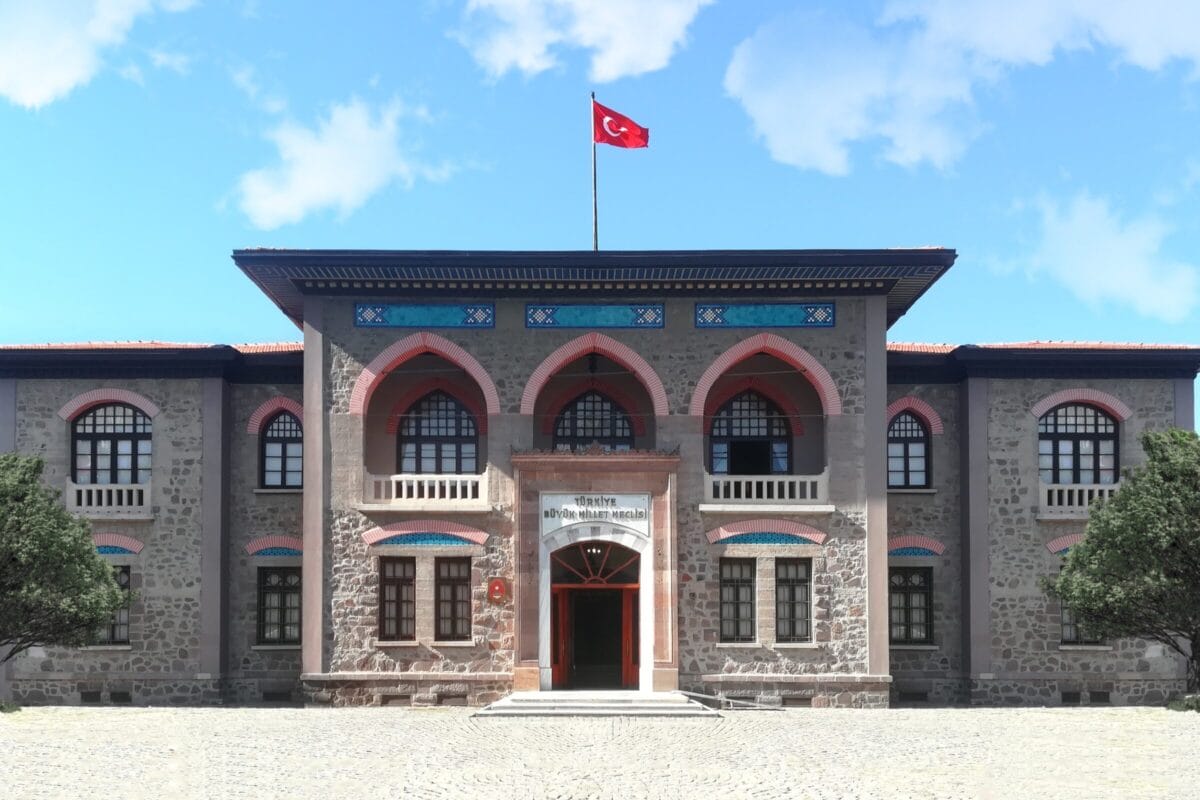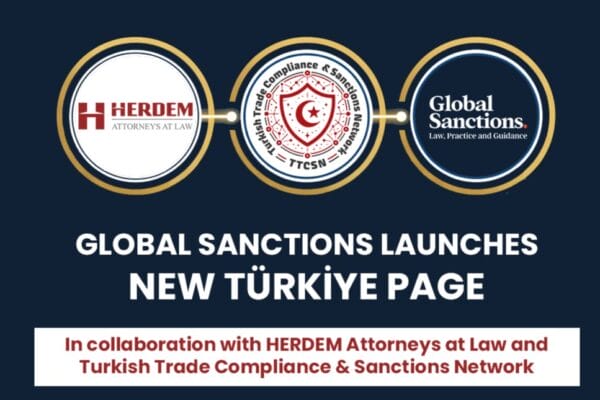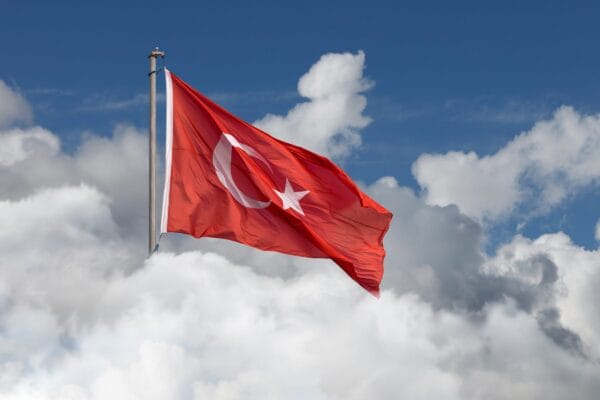Overview
Sanctions
Türkiye implements UN sanctions and autonomous sanctions through 2 legislative instruments, which have corresponding regulations setting out procedural rules.
These provide that:
- UN terrorism and non-proliferation sanctions are implemented by Presidential Decisions published in the Turkish Official Gazette;
- Türkiye can impose autonomous sanctions related to terrorism; and
- The national competent authority for implementing asset freeze sanctions is the Financial Crimes Investigation Board (MASAK).
As of October 2025, Türkiye has sanctioned 112 people and entities who are said to be linked to terrorism following requests by foreign states. This includes people and entities sanctioned by the US under the US terrorism sanctions regime. Türkiye also imposes sanctions on more than 1400 people who are said to be linked to terrorism on its domestic sanctions list.
MASAK can grant licences to permit transactions which would otherwise be prohibited by Turkish sanctions law.
Breaching Turkish asset freeze sanctions is a criminal offence. Individuals who breach sanctions may receive prison sentences and legal entities may be fined.
In addition to the duty to impose asset freezes, Turkish sanctions legislation also imposes reporting obligations on sanctioned people, those who hold their assets, and those in a claim or debt relationship with people whose assets are frozen.
Export controls
Türkiye imposes licensing requirements on exports of dual-use goods listed in international control lists, as well as other goods in certain circumstances.
National Competent Authorities
The Financial Crimes Investigation Board (MASAK) is the national competent authority for implementing targeted financial sanctions in Türkiye.
The Presidential Cabinet makes decisions to freeze assets, considering information provided by MASAK and other institutions.
The Chief Public Prosecutor’s Office is responsible for investigating and prosecuting sanctions breaches following referrals by MASAK.
The Ministry of Trade’s General Directorate of Customs and the Turkish Atomic Energy Authority are jointly responsible for processing export licence requests for dual-use goods, depending on their nature.
Legislation
Terrorism sanctions
Türkiye imposes UN terrorism sanctions and autonomous terrorism sanctions through Law No. 6415, the implementation of which is governed by the accompanying regulations.
Law No.6415 on the Prevention of Financing of Terrorism
Nuclear non-proliferation sanctions
Türkiye imposes UN non-proliferation sanctions through Law No. 7262, the implementation of which is governed by the accompanying regulations. Presidential Decision No. 3578 sets out a full list of those subject to sanctions under the UN non-proliferation sanctions regime, as well as items which are subject to controls.
Law No. 7262 on the Prevention of the Financing of Proliferation of Weapons of Mass Destruction
Sanctions communiqués
Turkish sanctions legislation provides that MASAK can issue communiqués setting out procedural requirements for those who are subject to sanctions and reporting requirements.
MASAK General Communiqué No. 13 on Suspicious Transaction Reporting
MASAK General Communiqué No. 12 on Asset Freezing
Export Controls
Turkish dual-use export controls are governed by a Ministry of Commerce communiqué, which is issued on the authority of the Export Regime Decision and the Export Control Regulation.
Sanctions Lists
Türkiye maintains 4 lists of people and entities subject to asset freezes:
Decision No.3578 maintains a list of people and items which are subject to UN non-proliferation sanctions, including sanctions on Iran and North Korea.
Guidance
MASAK: Frequently Asked Questions on Law No. 6415 on the Prevention of the Financing of Terrorism
MASAK: National Terrorist Asset Freezing Mechanism (2019)
MASAK: Guidance on Combating Financing of Terrorism for Financial Institutions (2025)
MASAK: Guidance for Applications Against Freezing Decisions
MASAK: Guidance for the Freezing/Unfreezing of Assets
Ministry of Customs Strategic Trade Controls Guidance
Ministry of Customs Export Information Sheet
Ministry of Trade Frequently Asked Questions on the Export Regime
Licensing
Those subject to Turkish asset freezing decisions under Law No. 6415 can apply to MASAK for permission to make payments that would normally be prohibited by sanctions under Article 13. Article 13 provides that obligatory payments for the purchase of goods and services, legal fees, wages, rent and insurance, among others, can be made if they facilitate:
- The subsistence of the person whose assets are frozen, or a member of their immediate family; or
- The continuance of a legal entity whose assets have been frozen.
Sanctioned people and entities do not normally require MASAK permission to pay taxes and other administrative fees to public institutions.
Where MASAK grants a license to a business to make payments, the business must notify MASAK of all transactions made under the licence. The time frame for this notification will be set out in each individual licence.
Article 13 of the Non-Proliferation Sanctions Regulations provides for the same licencing regime for those sanctioned under Law No. 7262.
For export control licensing, see our export control section.
Enforcement
Under Article 15 of the Law on the Prevention of Financing of Terrorism, breaching asset freeze provisions imposed due to terrorism is a criminal offence punishable by between 6 months and 2 years in prison or with a fine. Legal entities which breach sanctions provisions can receive a fine of between 10,000 and 100,000 Turkish Lira.
Article 5 of the Law on the Prevention of the Proliferation of Weapons of Mass Destruction sets out punishments for breaching UN sanctions measures related to WMD financing:
- Collecting or providing funds for people listed by the UN is punishable by between 1 and 5 years imprisonment or a fine;
- Exporting or importing specified equipment or contributing to nuclear activities and nuclear weapons system development is punishable by between 2 and 8 years imprisonment;
- Breaching asset freeze measures imposed under the UN is punishable by between 6 months and 2 years imprisonment.
Reporting
Article 12 of Law No. 6415 provides that people and entities whose assets are frozen must inform MASAK of the value of their assets and any outstanding claims or debts which might affect them. Those who are in a claim or debt relationship with a person whose assets are frozen must give MASAK details of the claim or debt.
MASAK may require a person or organisation to freeze assets held by them on behalf of a sanctioned person. If this happens, the person or organisation freezing the assets must report the details of the frozen asset(s) to MASAK within 7 days of the initial request.
Article 11 of the Non-Proliferation Sanctions Regulations imposes the same reporting obligations as above on those sanctioned under Law No. 7262.
MASAK guidance on asset freezes provides template letters for those who owe reporting obligations to MASAK. These letters should be addressed to:
Ministry of Treasury and Finance,
Financial Crimes Investigation Board,
A Blok,
Dikmen Caddesi,
Dikmen,
Çankaya/ANKARA
Some forms can be submitted by email to webmaster@masak.gov.tr, but the guidance says submitting forms electronically “shall not absolve of the sending requirement in paper form.”
Export controls
Türkiye participates in 4 multilateral export control regimes (the Australia Group, the Missile Technology Control Regime, the Nuclear Suppliers Group, and the Wassenaar Arrangement). All items listed by those regimes are subject to Turkish export controls. Their implementation in Türkiye is controlled by the following government bodies:
- The Ministry of National Defence, which controls exports of military goods;
- The Turkish Atomic Energy Authority, which controls material and dual-use items in the Nuclear Supplier’s Group control list;
- The Ministry of Trade, which controls items on the Australia Group’s chemical weapons precursor list and all dual-use items listed by the Wassenaar Arrangement and the Australia Group.
Under the Communique on Control of the Export of Dual-Use and Sensitive Substances, items on the Wassenaar Regulation Dual Use Materials and Technology List and the Australia Group Chemical Weapons Precursor List are subject to Turkish export controls. Exports of dual-use material and technology which are not on one of those lists will also require an export licence if:
- The material or technology is being exported to an end user suspected of developing weapons of mass destruction;
- The exporting company makes a statement that it suspects that all or part of the material may be used in the development of weapons of mass destruction; or
- The circumstances are such that national or international security or human rights may be compromised by the export.
Judgments
-
Yasin Qadi v Prime Minister of Turkey Judgment No. 2006/4795









